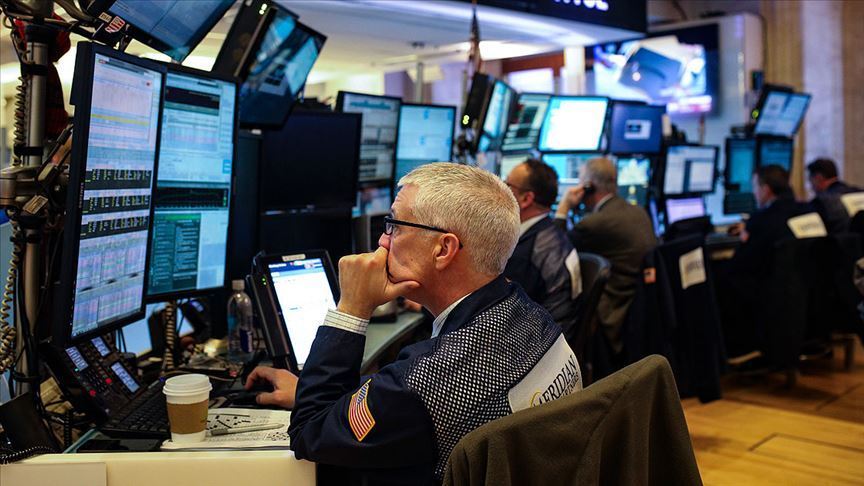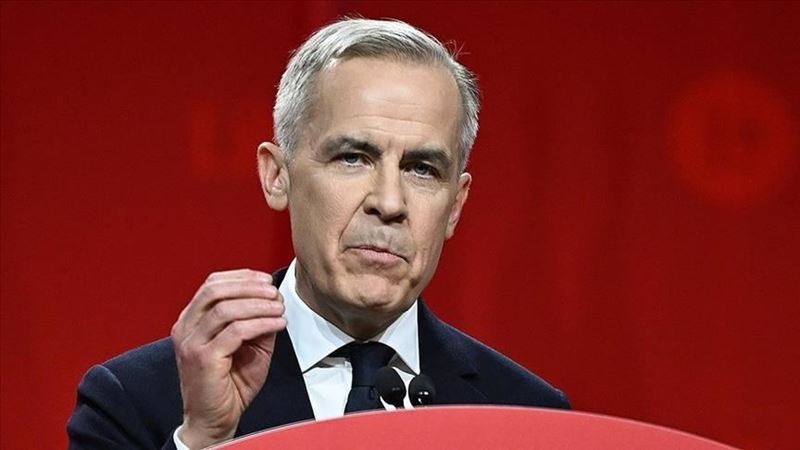While the world stock markets continue to search for a direction between the recession and inflation dilemma, the eyes are turned to the inflation data to be announced in the USA today.
While the US bond markets have been fluctuating since the beginning of the week, the yield curve for some assets has inverted. While the difference between the US 2-year bond rate and the 10-year bond rate increased to 12.4 basis points yesterday, pointing to the highest level of the last 15 years, it continues its recession pricing in the new day.
While the statements that June inflation may be high increase the uncertainties in the markets, the dollar index continues its high level of the last 20 years with 108.1 due to the increasing dollar demand.
While the Fed's July meeting is considered to be a 75 basis point interest rate hike, the expectation that a 75 basis point interest rate increase will be made in the September meeting is getting stronger.
The new type of coronavirus (Kovid-19) cases, which have started to increase again around the world, support the already very high uncertainties, making pricing difficult in almost all assets.
With the fear that the Kovid-19 epidemic may cause reclosures and economic activity may slow down, the price of Brent oil per barrel decreased by 7 percent to $ 97.3 yesterday, while the strong dollar continues to suppress the ounce price of gold.
On the other hand, the International Monetary Fund (IMF) once again lowered its growth forecasts for the US economy, from 2.9 percent to 2.3 percent for this year and from 1.7 percent to 1 percent for 2023.
In the statement, it was stated that the rapid recovery in demand, rising energy prices and ongoing global supply cuts led to a significant acceleration in inflation, and it was stated that wage and price pressures were broad-based and spread rapidly in the economy.
With these developments, the S&P 500 index fell 0.92 percent, the Nasdaq index 0.95 percent and the Dow Jones index 0.62 percent in the New York stock market yesterday. Index futures contracts in the USA started the new day with an increase.
While the European stock markets followed a positive course yesterday, the euro/dollar parity dropped to the lowest level of the last 20 years by testing the 1.0000 level.
Concerns that the European Central Bank (ECB) may not have sufficient policy space due to rising geopolitical risks are weighing on the euro, although expectations that the Fed will continue to aggressively pursue its hawkish policies remain strong.
Earlier in the week, Russia announced that Nord Stream 1, the largest pipeline carrying Russian gas to Germany, will be closed for 10 days of maintenance. Fears that Russia may not reopen the natural gas flow to punish western countries due to sanctions have weighed on the markets, while gas futures contracts in Europe for July are hovering at 175 euros.
Yesterday, with these developments, the DAX 30 index gained 0.57 percent in Germany, the FTSE 100 index gained 0.18 percent in the UK, and the CAC 40 index gained 0.80 percent in France, while the FTSE MIB 30 index gained 0.38 percent in Italy. declined. Index futures contracts in Europe started the new day with a mixed course.
While the stock markets in Asia follow a buying-heavy course, Taiwan's government's announcement that it will implement the equities market balancing fund is effective in this course.
While Kovid-19 cases, which continue to increase in China, erode the risk appetite, central banks excluding China and Japan continue their tightening monetary policy steps.
Today, South Korea and New Zealand central banks increased interest rates by 50 basis points each as part of the fight against inflation, while the policy rates of the countries rose to 2.25% and 2.50%, respectively. The 50 basis point rate hike by the South Korean Central Bank drew attention as the strongest move since 1999.
With these developments, the Nikkei 225 index in Japan gained 0.5 percent, the Shanghai composite index in China gained 0.2 percent and the Kospi index in South Korea gained 0.6 percent, close to the closing.
Borsa İstanbul, which took a holiday in the country on Friday afternoon, is reopening. On Friday, the BIST 100 index, which followed a buying-heavy course, closed the day with an increase of 0.35 percent at 2,4434.02 points, while the eyes were turned to the unemployment data to be announced today.
Dollar/TRY is trading at 17.3460 at the opening of the interbank market today, after closing at 17.3164 with a decrease of 0.3 percent yesterday.
Analysts stated that today, the Fed's Beige Book Report will be followed, along with industrial production and foreign trade data in the UK, Consumer Price Index (CPI) in Germany, industrial production in the Eurozone and CPI in the USA. Technically, he reported that 2.460 and 2.500 levels in the BIST 100 index are in the resistance position and 2.390 points are in the support position.
The data to be followed in the markets today are as follows:
09.00 England industrial production and foreign trade balance in May
09.00 Germany, June CPI
10.00 Turkey, unemployment in May
12.00 Euro Zone, industrial production in May
15.30 US, June CPI
21.00 US, Fed's Beige Book Report









Comments
No comment yet.